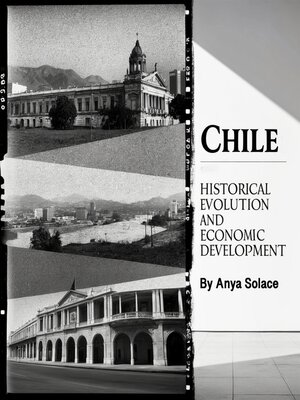
Sign up to save your library
With an OverDrive account, you can save your favorite libraries for at-a-glance information about availability. Find out more about OverDrive accounts.
Find this title in Libby, the library reading app by OverDrive.



Search for a digital library with this title
Title found at these libraries:
| Library Name | Distance |
|---|---|
| Loading... |
Chile's history is a tapestry woven with threads of indigenous heritage, colonial conquest, political revolution, and economic transformation. Stretching along the western edge of South America, Chile's unique geography—bordered by the Pacific Ocean to the west and the towering Andes to the east—has shaped not only its physical landscape but also its historical trajectory and economic development. The country's diverse climates, from the arid Atacama Desert in the north to the fertile central valleys and the rugged, windswept terrain of Patagonia in the south, have influenced settlement patterns, agricultural practices, and resource exploitation for centuries.
Long before Spanish colonization, Chile was home to numerous indigenous groups, including the Mapuche, who fiercely resisted foreign domination. Their cultural legacy remains an integral part of Chile's identity, despite centuries of marginalization. The arrival of Spanish conquistadors in the 16th century marked the beginning of a colonial era characterized by the extraction of natural resources, the establishment of a rigid social hierarchy, and the introduction of European institutions. The colonial economy relied heavily on agriculture, mining, and forced indigenous labor, laying the foundation for economic systems that persisted well into the post-independence period.
Chile's struggle for independence from Spain in the early 19th century was part of the broader wave of liberation movements sweeping across Latin America. Achieving independence in 1818 under the leadership of figures like Bernardo O'Higgins and José de San Martín, Chile faced the daunting task of nation-building. The early republican period was marked by political instability and power struggles between conservative and liberal factions, each advocating different visions for Chile's future.







